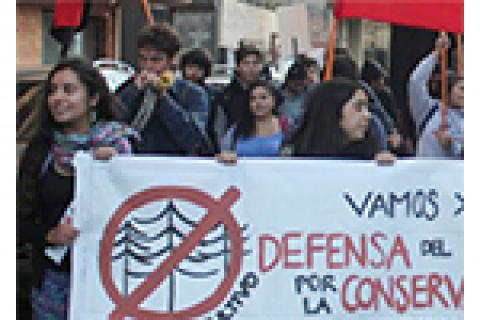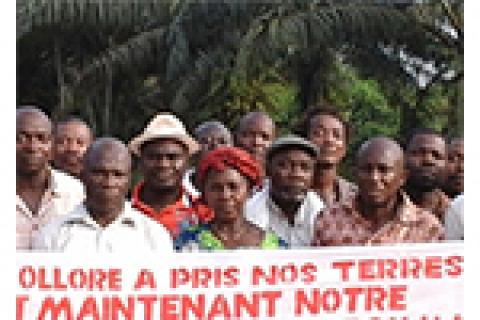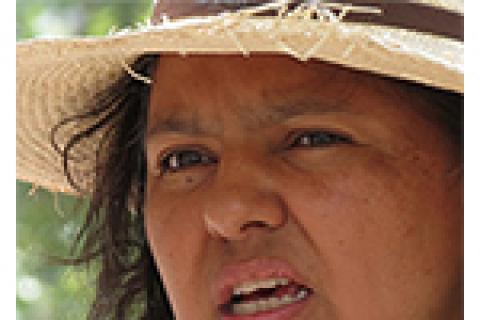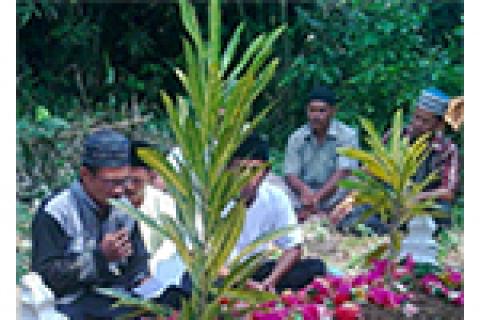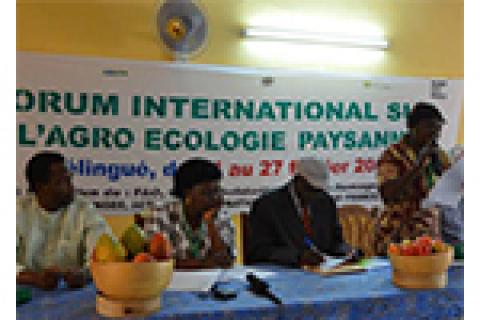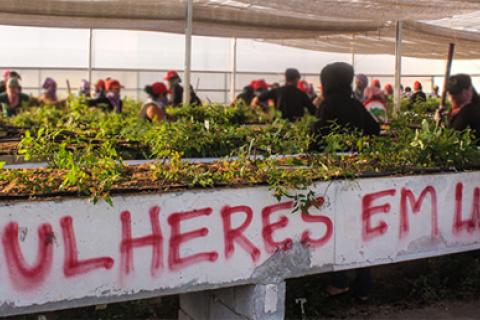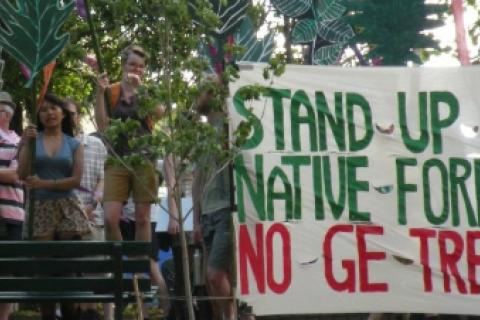Forest fires in the south of Chile have been very aggressive this year, affecting thousands of hectares of forests from three protected areas in the Araucanía region, south of Chile. On April 14th, a march was organized to denounce the root of the problem: the expansion of the forestry industry.
Other information
The radio program Growing Voices, from Radio Mundo Real, discusses the impacts of the highly criticized Wilmar International, one of the largest palm oil corporations in the world. The program looks closer at the case of Kalangala in Uganda, where over one-hundred Ugandan small-scale farmers were evicted, and their lands grabbed by Oil Palm Uganda Limited, a subsidiary of Bidco Uganda Ltd - which in turn is a venture co-owned by Wilmar International.
Peasant farmers deprived of their lands launch a series of occupations on Socfin’s plantations in Cameroon, Liberia, Cambodia and Côte d’Ivoire between the end of April 2015 and the annual shareholder meetings of the Socfin group (27 May) and the Bolloré group (4 June). The Bolloré group is the biggest shareholder (39%) of Socfin, which has industrial oil palm and rubber plantations, among others in the countries where the protests are taking place.
In a country with growing socioeconomic inequality and human rights violations, Berta Cáceres played a key role in the struggle of the indigenous lenca peoples of Honduras against the construction of a mega-dam that would destroy the Rio Blanco. She undertook a grassroots campaign with the local communities and led a protest where people peacefully demanded their rightful say in the project.
The opinion article from the Jakarta Post by Abetnego Tarigan, of the Indonesian NGO Walhi, and Iwan Nurdin, of the Agrarian Reform Consortium, warns on how the international focus on the impacts of plantation companies has been on their environmental impacts rather than their human rights abuses. They explain how the recent torture and murder of Indra Pelani amounts to an entrenched industrial plantation system whereby whole swaths of rural land have been taken from locals without their consent.
The India Climate Justice collective has published the third issue of the Mausam magazine aiming to facilitate constructive and creative debates on climate issues. It attempts to connect these issues to local struggles over natural resources, fossil fuel extraction, lands, livelihoods and food sovereignty.
More than 200 people took part in the Forum, held in Nyéléni, Mali, from February 23 to 27, to develop joint strategies to promote agroecology and defend it from corporate co-option. The declaration of the Forum affirms that “Agroecology is political; it requires us to challenge and transform structures of power in society.
A new report by EJOLT, an alliance of academic and activist groups struggling for environmental justice, analyses the increasing global biomass trade and highlights its impacts. The report examines the global evolution of food production and international food trade and identifies related drivers of socio-environmental conflicts.
The Global Alliance for Climate-Smart Agriculture was launched on September 2014, at the UN Climate Summit in New York. This alliance is the outcome of years of determination by FAO and the World Bank to get the concept of “climate-smart agriculture” onto the international agenda, together with the ideological context and policies it implies.
The latest Nyéléni newsletter edition shows articles on how peoples across the world are fighting to secure and defend their rights to “natural resources” and the rights of nature, providing valuable information about tools that can be used to strengthen our struggles.
You can download the newsletter (in English) here:
http://nyeleni.org/DOWNLOADS/newsletters/Nyeleni_Newsletter_Num_21_EN.pdf
In an unprecedented and alarming move, the United States Department of Agriculture has given GE tree company ArborGen permission to pursue commercial production of a genetically engineered loblolly pine with no regulatory oversight or environmental risk assessment. In the current plan, the potential impacts to the public or to the environment will not be evaluated. This decision sets a terrible and unacceptable precedent.
